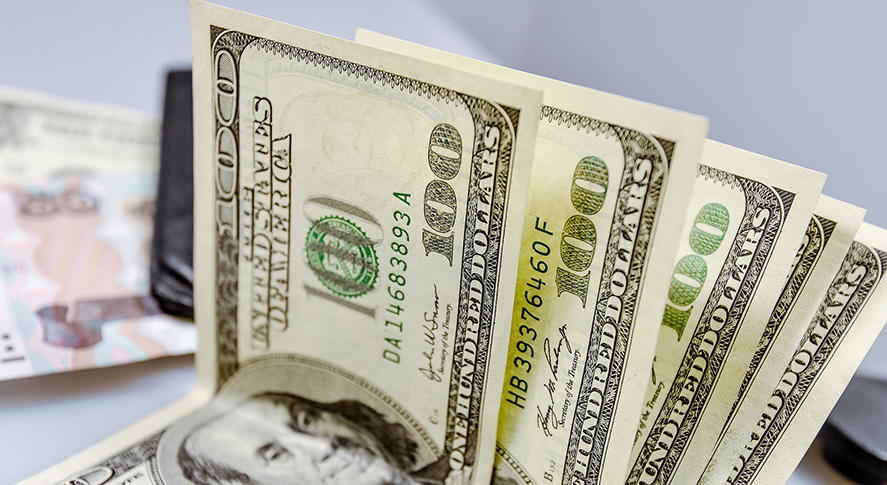What is pocket money?

Every parent dreams of teaching their child how to properly manage money. In different cultures, this issue is treated differently. In some countries, it is not customary to give pocket money to a child, while in others, the state advises parents when and how much to give to children. In the post-Soviet space, all adults may have different opinions, but there is no single answer to this question.
Someone thinks that pocket money is pampering, and someone-a necessity. Experts and psychologists suggest that with the right approach, money for a child will not be an excess, but a tool with which he will be able to learn how to properly manage his money. They will need financial literacy in adulthood, as well as the ability to write, count, and read.
Pocket money-pros and cons
There are countries that have adopted a law that requires parents to provide their child with pocket money. For example, in Germany, the government recommends that adults give their children a certain amount of money each month. In this case, the amount depends on the child’s age. Of course, the final decision must be made by the family. However, it should be understood that the child will learn to handle money only if they have it.
Do children need pocket money?
Not all adults believe that children should have their own personal finances. They give the following arguments in favor of their opinion:
- children have everything they need for life and development;
- the money will be spent on another trinket;
- the child does not know the value of money;
- greed may appear, and in order to obtain funds, he will blackmail his family members.
Of course, there is no denying that in life there are also such cases. Often they occur due to the fact that parents are trying to buy off the child, and not to instill in him the basics of financial literacy. What mistake do adults make when giving money to children? The most common omissions include:
- issuing too large amounts;
- lack of advice on how to spend money efficiently;
- parents do not discuss their child’s expenses with them, but only scold them for buying unnecessary things;
- using the ” carrot and stick “method: when funds are given for good behavior, they don’t give money for bad behavior.
What are the benefits of pocket money for children? Parents who consistently give their children money believe that:
- it’s time for their child to learn how to set financial goals and achieve them;
- the child will be able to assess the benefits of financial independence;
- they will understand the value of money, learn how to save it and spend it wisely;
- there will be a development of modern tools for making payments and transfers with the help of parents.
It is also worth noting that teenage children can be complex, due to the fact that their parents do not give them money for pocket expenses. While all his peers have the financial means.
Adults need to be patient and take a responsible approach to solving this issue:
- money should be given regularly, but in small amounts, and the child’s behavior and school grades should be taken into account;
- teach you how to choose the right tools for saving money;
- discuss your child’s expenses regularly, as well as explain their rights and responsibilities in relation to their finances;
- you should share your experience;
- adhere to certain rules, for example, if you gave your child a certain amount for a week, and he spent it in a day, then you should not make concessions to him and give him more. Wait until the appointed day arrives.
Most psychologists have come to the conclusion that pocket money is simply necessary for a child to teach him financial literacy at an early age. However, only the correct attitude of parents to the money issue will allow you to control this process. The topic of finances should not be embarrassing for your family.
From what age should I give pocket money to children: how and how much?

The Civil Code of some countries allows you to carry out small transactions from the age of 6 years. Small transactions include purchases for small amounts, daily expenses, for example, buying bakery products. Often, six-year-olds crave independence and are happy to make purchases. The older your child gets, the more money you can give them. With age, his responsibility increases, and he learns to manage his own money independently.
How much pocket money should I give my child? First of all, the amount depends on the level of income and expenses of the family. If you have friends with children, you may want to know how much money their children receive. It is very important to maintain a balance in this matter. The child should not feel worse than others. Also, it is not necessary that he looks too rich against the background of other children.
Do I need to give my child pocket money for doing homework?
Some parents make the mistake of giving money to their children to do their homework. Do not monetize the care of each other, because cleaning the house and order is a common thing for all family members. Any child has certain responsibilities, which include attending school, doing homework, maintaining order in the room, and helping parents with household chores. Of course, if your child has unusual tasks that he performs independently or with your help, then he can get money. For example, your son or daughter painted a neighbor’s fence. A fee is due for such work.
How do I control my pocket money?
If you want to track where the child spends the money received, then do it tactfully. Surveillance in this matter will be inappropriate. Otherwise, the child’s pocket money will become the parent’s. Adults should trust their child in the matter of money. As for the child, he should have responsibility.
Currently, there are special financial instruments that allow you to carry out imperceptible control over the child’s spending. Your son or daughter will feel responsible for their finances, and their parents will see where they spent them. For example, in many banks, you can get a card for a child that is linked to the account of one of the parents. You can set a certain limit on it. You will receive notifications about all transactions that were made with the additional card.
Of course, you give money to the child, do not forget about this. It is likely that they will spend mindlessly at first, but they will learn from it over time. This will give them the basics of financial literacy.
How to learn how to save pocket money for teenagers?
Now almost everywhere there are ads for banking services. The slogans call for “taking out a loan” or”living one day.” Even adults can fall into this trap, so don’t scold your children if they start asking you questions about getting a loan.
If you want to teach your child how to use their finances efficiently, then first of all tell them about how to achieve their goal. The sequence should be as follows:
- for the purpose of limiting yourself to something,
- gradually save money and get closer to it,
- goal completion.
The example can be quite simple: I buy chocolate every day or save money and buy a toy.
Tools that will allow you to save pocket money for your child

Each of us had a piggy bank as a child. You can give such a device to your child. On sale there are convenient piggy banks that allow you to open the container and calculate how much money has accumulated in it.
Another popular method is visualization. The child draws the item that he would like to buy, then hangs the picture in a prominent place. Here you can also attach an envelope so that the child can put money there.
To focus on your financial goal, you can create a wish list.
A more advanced method is a bank card or wallet. You can teach a teenager how to use it. Get a bank card or wallet so that your child can track their balance. By regularly depositing money, he will be able to view his savings, which will certainly become motivation for further savings.
An important role in this issue is played by the behavior of parents. If you do not know how to save money or achieve financial goals, then you are unlikely to be able to teach your child financial literacy.
How to learn financial literacy for adults? First, you need to start keeping records of expenses and income. Don’t spend more money than you can earn. Getting messy loans won’t help you improve your financial situation. More often use financial instruments intended for the accumulation of funds. Do not forget about the financial “cushion”.
Children always take an example from their parents, so spend your money efficiently.














Leave a Reply